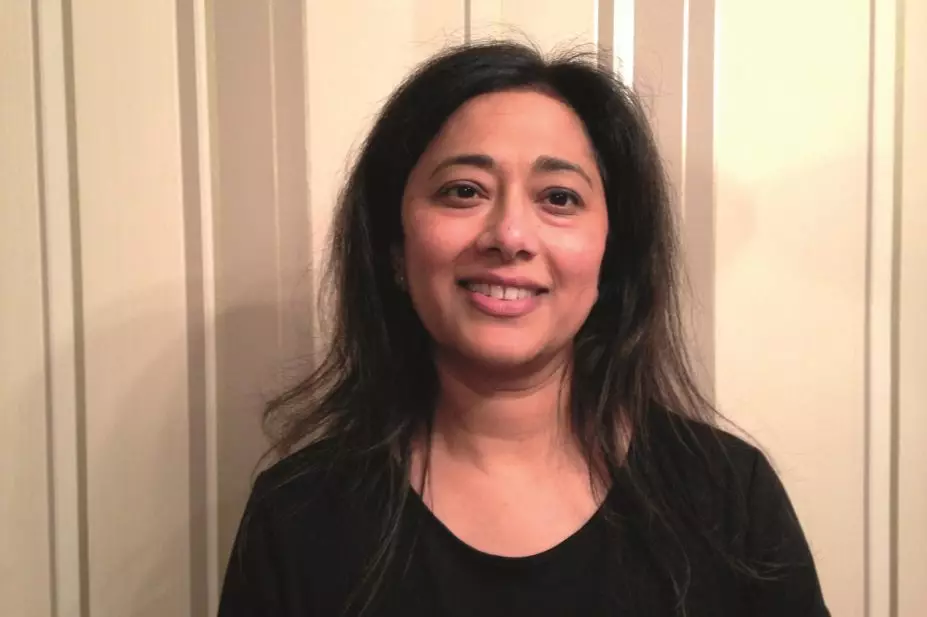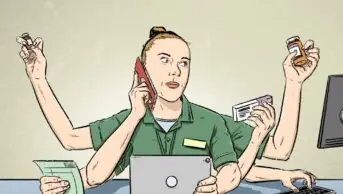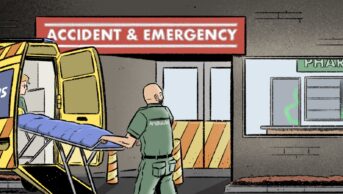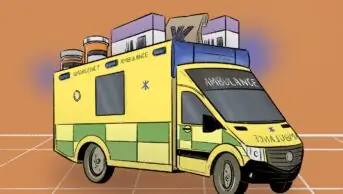
Reema Caddies
What is your professional background?
After registering as a pharmacist, I initially worked in community pharmacy and took part in a repeat prescribing pilot linked to local GP practices, run by the local primary care trust. I then moved into primary care, working both in clinical governance and prescribing support roles.
I have also worked within the pharmaceutical industry in commissioning and training roles and as a continuing professional development facilitator for the then Royal Pharmaceutical Society of Great Britain (RPSGB).
It was not until I started working for NHS Direct as a pharmacist adviser that I realised how much I enjoyed telemedicine and understood how valuable pharmacists are in urgent care.
How did you end up working for NHS 111, and what do you do there?
NHS 111 is a non-emergency telephone helpline that was introduced in February 2014 to help patients access urgent medical advice. Some providers of the NHS 111 Services, including Yorkshire Ambulance Service (YAS), employ pharmacists in their call centres. I am currently working for YAS as a pharmacy adviser. My role involves supporting call handlers and clinical advisers to ensure that enquiries about medicines and calls about toxic ingestion are handled safely.
I also take direct calls from patients. In telemedicine, the whole concept of patient counselling is taken to another level because you cannot communicate with body language or facial expressions. You have to extract the relevant information while being empathetic. Words are your only exchange with the patient and it is vital that you have the necessary skills to do this. Prompting, tone of voice, questioning skills and empathy are vital to maintain trust and confidence.
What do you enjoy most about your work there?
I enjoy being part of a multidisciplinary team that works under one roof. If there is a query for a clinician it can be dealt with quickly — this is important in urgent care. Pharmacist and pharmacy services should be integrated as part of the overall urgent care landscape.
The range and type of calls vary significantly. Many of the calls are from elderly patients and we can act as a lifeline. In one call, the patient may be housebound; in another, an exhausted carer just needs to talk to someone about how to handle medicines. Other times, patients want to clarify their understanding of instructions and may have had mixed advice from friends and family.
Pharmacists provide medication advice and health information to patients calling 111, supporting them to access the appropriate level of care including advice to manage their symptoms at home.
Handling the calls can be stressful when dealing with anxious and distressed patients, so this role is not for the faint-hearted. Although we do not always have the answers to queries immediately, we ensure that the caller is safe and equipped to manage within an out-of-hours period. I find it most satisfying when a patient thanks me following a medicines enquiry, because I know I have helped to make a difference.
Your other role is medicines management lead at Local Care Direct. What does this involve, and how does it fit in with your work at NHS 111?
Local Care Direct (LCD) is a social enterprise that delivers a range of urgent and primary care services in West and North Yorkshire. LCD works with YAS to deliver the urgent care pathway, which includes NHS 111 call handling and assessment services and GP-led telephone and face-to-face patient consultations.
I coordinate the medicines management requirements at LCD and, additionally, I provide medicines support to four primary care centres. My role also involves training staff and auditing the safe and secure handling of medicines.
LCD and YAS work in partnership, and my role is based at the interface between the two — I am involved in supporting the training and development of pharmacists at YAS and will be supplying medicines information for LCD’s GP centres. Supporting both organisations allows me to understand the patient journey right from the initial point of contact with an NHS 111 call handler through to a possible home visit from an out-of-hours GP. It is vital that there is a seamless transfer of care for patients through the appropriate referral channels.


